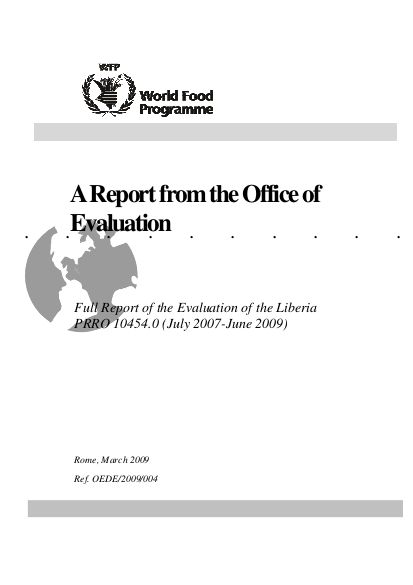
By the end of 2008 Liberia had enjoyed relative peace and stability for more than 5 years. However despite continued stability and a strengthening economy, Liberia remained desperately poor, with high levels of unemployment and under-employment. Food insecure was widespread (11 percent of all Liberian rural/semi-urban households were completely food insecure in 2006 and 40 percent of rural households were considered ‘highly vulnerable’ to food insecurity). The country was heavily reliant on imported food to meet local needs. Between 2001 and 2007 WFP provided assistance to the victims of the conflict in Liberia through a series of regional West Africa Coastal PRROs (including Guinea and Sierra Leone), enabling WFP to respond more quickly to sudden shifts of populations across international borders, which had became a feature of the spreading conflict. As the situation stabilized after 2003 WFP shifted the focus of its humanitarian assistance from relief to recovery, and introduced a dual approach of supporting the reestablishment of basic social infrastructure in rural areas, with an emphasis on education and primary health care, to attract returnees and support the re-establishment of rural livelihoods, particularly agricultural rehabilitation. In July 2007 WFP shifted to single country intervention, PRRO 10454.0.
Criteria: Relevance, Effectiveness, Efficiency, Sustainability, Impact
